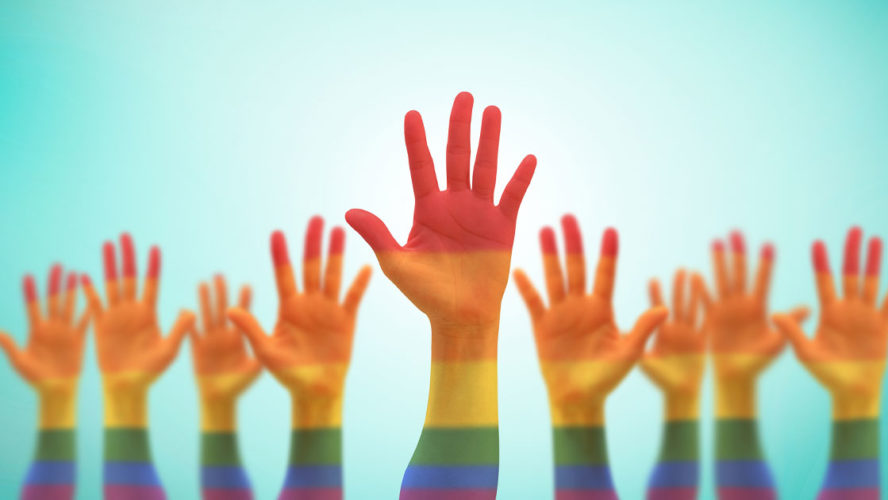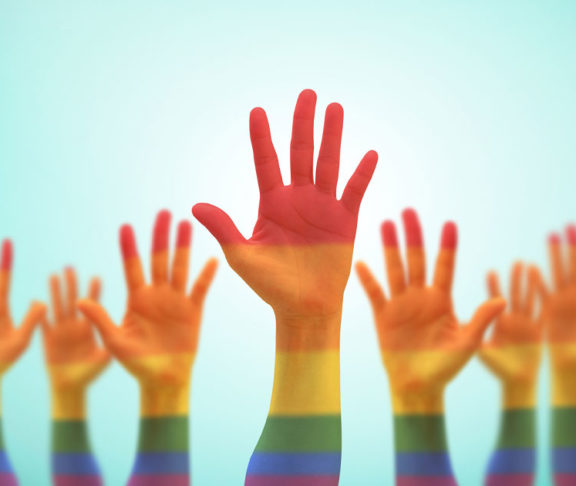Imagine you walk into a healthcare office and the front desk staff calls you by the wrong name or uses the wrong pronouns. In the exam room, your healthcare professional doesn’t perform a diagnostic test because they make assumptions about you without asking. And imagine on your way out the door, you wonder whether to come back at all given these dispiriting experiences.
LGBTQ+ people face similar situations in healthcare settings with devastating consequences daily. Studies indicate LGBTQ+ individuals delay care at alarming rates, due in part to negative experiences with their healthcare providers. Most clinicians want to help, but too often don’t have the training or tools to ensure a welcoming and affirming healthcare experience for LGBTQ+ patients and their families, and don’t have a basic understanding of LGBTQ+ health.
Providers can start with simple steps such as displaying LGBTQ+-oriented media, like photos of same-sex couples, in waiting rooms; ensuring intake forms and medical records include questions about sexual orientation and gender identity and options to designate a domestic partner; and asking clients what pronouns they use. These indicators can help patients begin to understand their providers are proactively on their side.
These efforts must be backed up with comprehensive training for providers and their staff. Clinicians must make the additional effort to undergo continuing education in healthcare concerns specifically impacting LGBTQ+ populations. These can include increased depression, suicidality, substance use, psychological distress, elevated stress hormone levels, and higher risk factors for certain forms of cancer and cardiovascular disease, often caused by societal discrimination.
Training in LGBTQ+ health has become increasingly available nationwide, and the GLMA Annual Conference on LGBTQ Health provides one-stop shopping as the premier scientific conference on LGBTQ+ health designed to train and educate clinicians about the health needs of LGBTQ+ people. We’re expecting more than 500 physicians, nurses, nurse practitioners, physician assistants, psychologists, social workers and other health professionals to join us this October.
Critical resource
More than 15 years ago, GLMA created the first national directory of LGBTQ+ affirming healthcare providers and we encourage all clinicians and healthcare providers who support LGBTQ+ communities to join our network. This Pride Month, with our partners at the Tegan and Sara Foundation, we’re re-launching a new and improved online LGBTQ+ Healthcare Directory for clinicians to join.
Soon LGBTQ+ people will also be able to access our re-launched provider directory so that everyone in our communities can find the care they need no matter where they live. In the meantime, our existing directory continues to connect LGBTQ+ individuals with affirming providers. Given the current political climate, the need has never been greater.
LGBTQ+ patients can access GLMA’s “Top Ten Issues You Should Discuss with Your Healthcare Provider” fact sheets identifying some of the most common health concerns for LGBTQ+ people. With providers still learning about these issues, the fact sheets help LGBTQ+ patients take charge of their own health with information they can share with their healthcare providers.
Together, LGBTQ+ individuals and the healthcare community can make a difference. Most importantly, by taking some simple steps and committing to learn and do more, providers can make significant strides to improving the health and wellbeing of LGBTQ+ people. Our lives and health depend on it.

